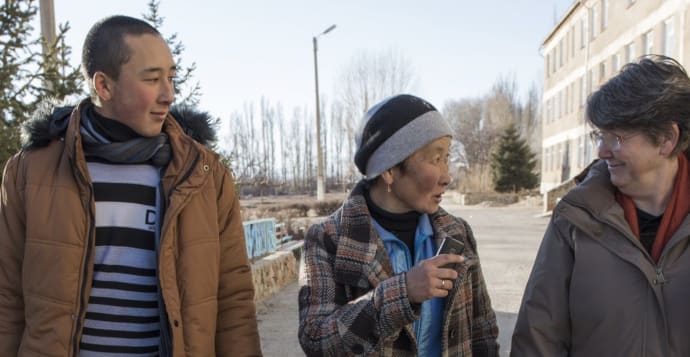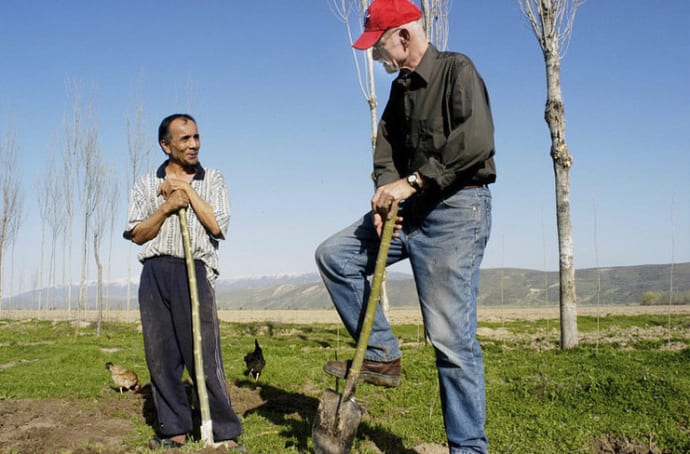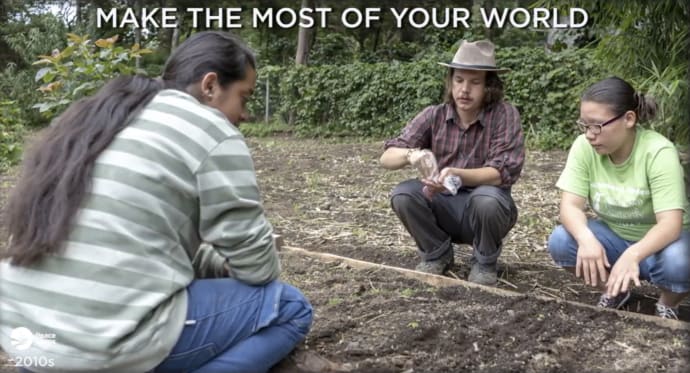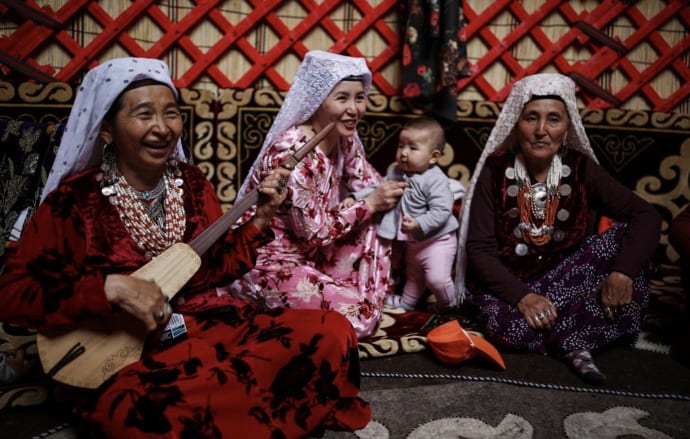
Peace Corps Projects Have Greater Reach Than Expected
As part of Peace Corps’ 60th anniversary celebration week, the Smithsonian Folklife Festival held “The Peace Corps at 60 and Beyond: “A Towering Task” Screening & Discussion” which cleverly walked through each decade of history of Peace Corps through video history and the stories of RPCV panelists. The stories varied, but together they emphasized the importance of volunteer projects, not only to the community, but to the volunteer. While Carol Spahn, Peace Corps Director, talked about driving inclusivity and promoting environmental sustainability in projects, other points have continued to replay in my mind as considerations for how we promote, support, and fund PCV projects in Kyrgyzstan.
As communities are inviting the Peace Corps in to support them, Peace Corps asks that projects are community driven. This can be a challenge for volunteers as we want to solve the problems they see and not those the community sees as a priority. Likewise, volunteers must be careful not to pose solutions but to facilitate them. After all, a community driven solution based on their self-identified needs is more likely to be long-lasting. Community involvement at every step of a project phase should be considered for funding ongoing projects.

Projects train volunteers in management and human relations. Often, we are used to having resources and knowhow at our disposal and therefore to taking quick action. It is easy to mistake the first goal of Peace Corps “Help the people of interested countries in meeting their need for trained men and women” as a call to simply fill the gap. A volunteer might think “I was brought in as the resource and the knowhow” and take on a role quickly. Taking a step back and support the community to assess what the community already knows, what they truly need and then connecting them with the right resources is not only more efficient, but shares leadership development opportunity with others, develops better listening and communication skills and teaches compassion and patience. In this light, donations to projects go to communities, but also to volunteer training in skills they need in today’s workforce.
Most impactful to me was that volunteers don’t always see or feel their success at the end of service, especially when there is not a tangible achievement to show like a new well or irrigation system. With many of the volunteers in Kyrgyzstan being education volunteers, this is likely very common. But the Peace Corps goal is 3-fold and often the cultural exchange goals have more lasting impact than the service and skill goal. Spahn mentioned during the panel that in exit interviews, relationships built are the most memorable and valuable part of volunteer service. That rings true for me! Projects are a fantastic opportunity for volunteers to integrate with the community at various relationship levels.

By contributing to small projects beyond their core focus (i.e. an education volunteer sponsors a small construction project), volunteers have a chance to meet more tangible skill based goals, but more importantly get to meet more diverse communities with whom to share their story (the second goal - Help promote a better understanding of Americans) and, in turn, can share a broader perspective about the community when they return to the US (the third goal - Help promote a better understanding of other peoples on the part of Americans).
Friends of Kyrgyzstan exists to fund Peace Corps volunteer projects. Following this panel, my commitment to this effort is renewed/re-invigorated. By thinking about the more ongoing reach of our donations, helps me to understand the true impact that even small projects can make on the volunteer and community experience with a volunteer. Knowing that my contributions, both in time and in donations, are going to help communities, individuals, volunteers, and that the benefit of that knowledge and positive experience will extend through conversation, I am grateful to be a part of this organization and to work with a great team of RPCVs who live the third goal – helping to promote a better understanding of other peoples on the part of Americans.
Thank you so much for reading! Please feel free to leave a comment below or contact me directly at TracyRiggan@gmail.com to share your story or learn more about how you can contribute to Peace Corps projects.


